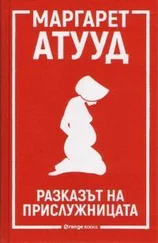Shunammite whispered across me at Becka: Don’t be so stupid! Aunt Vidala smiled, as much as she ever did, and said she hoped Becka would never find that out through personal experience, since those who did become adulteresses would end up being stoned or else hanged by their neck with a sack over their heads. Aunt Estée said there was no need to frighten the girls unduly; and then she smiled and said that we were precious flowers, and who ever heard of a rebellious flower?
We looked at her, making our eyes as round as possible as a sign of our innocence, and nodding to show we agreed with her. No rebellious flowers here!
—
Shunammite’s house had just one Martha and mine had three, so my father was more important than hers. I realize now that this was why she wanted me as her best friend. She was a stubby girl with two long thick braids that I envied, since my own braids were skinny and shorter, and black eyebrows that made her look more grown up than she was. She was belligerent, but only behind the Aunts’ backs. In the disputes between us, she always had to be right. If you contradicted her, she would only repeat her first opinion, except louder. She was rude to many other girls, especially Becka, and I am ashamed to tell you that I was too weak to overrule her. I had a weak character when dealing with girls my own age, though at home the Marthas would say I was headstrong.
“Your mother’s dying, isn’t she?” Shunammite whispered to me one lunchtime.
“No she’s not,” I whispered back. “She just has a condition!” That was what the Marthas called it: your mother’s condition . Her condition was what caused her to rest so much, and to cough. Lately our Marthas had been taking trays up to her room; the trays would come back down with hardly anything eaten from the plates.
I wasn’t allowed to visit her much anymore. When I did, her room would be in semi-darkness. It no longer smelled like her, a light, sweet smell like the lily-flowered hostas in our garden, but as if some stale and dirtied stranger had crept in and was hiding under the bed.
I would sit beside my mother where she lay huddled under her blue-flower-embroidered bedspread and hold her thin left hand with the magic ring on it and ask when her condition would be gone, and she would say she was praying for her pain to be over soon. That would reassure me: it meant she would get better. Then she would ask me if I was being good, and if I was happy, and I would always say yes, and she would squeeze my hand and ask me to pray with her, and we would sing the song about the angels standing around her bed. And she would say thank you, and that was enough for today.
“She really is dying,” Shunammite whispered. “That’s what her condition is. It’s dying!”
“That’s not true,” I whispered too loudly. “She’s getting better. Her pain will be over soon. She prayed for it.”
“Girls,” said Aunt Estée. “At lunchtime our mouths are for eating, and we can’t talk and chew at the same time. Aren’t we lucky to have such lovely food?” It was egg sandwiches, which ordinarily I liked. But right then the smell of them was making me feel sick.
“I heard it from my Martha,” Shunammite whispered when Aunt Estée’s attention was elsewhere. “And your Martha told her. So it’s true.”
“Which one?” I said. I couldn’t believe any of our Marthas would be so disloyal as to pretend that my mother was dying—not even scowling Rosa.
“How should I know which one? They’re all just Marthas,” said Shunammite, tossing her long thick braids.
—
That afternoon when our Guardian had driven me home from school, I went into the kitchen. Zilla was rolling pie dough; Vera was cutting up a chicken. There was a soup pot simmering on the back of the stove: the extra chicken parts would go into it, and any vegetable scraps and bones. Our Marthas were very efficient with food, and did not waste supplies.
Rosa was over at the large double sink rinsing off dishes. We had a dishwasher, but the Marthas didn’t use it except after Commanders’ dinners at our house because it took too much electricity, said Vera, and there were shortages because of the war. Sometimes the Marthas called it the watched-pot war because it never boiled, or else the Ezekiel’s Wheel war because it rolled around without getting anywhere; but they only said such things among themselves.
“Shunammite said one of you told her Martha that my mother is dying,” I blurted out. “Who said that? It’s a lie!”
All three of them stopped doing what they were doing. It was as if I’d waved a wand and frozen them: Zilla with the lifted rolling pin, Vera with a cleaver in one hand and a long pale chicken neck in the other, Rosa with a platter and a dishcloth. Then they looked at one another.
“We thought you knew,” Zilla said gently. “We thought your mother would have told you.”
“Or your father,” said Vera. That was silly, because when could he have done that? He was hardly ever at our house nowadays, and when he was, he was either eating dinner by himself in the dining room or shut inside his study doing important things.
“We’re very sorry,” said Rosa. “Your mother is a good woman.”
“A model Wife,” said Vera. “She has endured her suffering without complaint.” By this time I was slumped over at the kitchen table, crying into my hands.
“We must all bear the afflictions that are sent to test us,” said Zilla. “We must continue to hope.”
Hope for what? I thought. What was there left to hope for? All I could see in front of me was loss and darkness.
—
My mother died two nights later, though I didn’t find out until the morning. I was angry with her for being mortally ill and not telling me—though she had told me, in a way: she had prayed for her pain to be over soon, and her prayer was answered.
Once I’d finished being angry, I felt as if a piece of me had been cut off—a piece of my heart, which was surely now dead as well. I hoped that the four angels round her bed were real after all, and that they had watched over her, and that they had carried her soul away, just as in the song. I tried to picture them lifting her up and up, into a golden cloud. But I could not really believe it.
III
Hymn

The Ardua Hall Holograph
Readying myself for bed last night, I unpinned my hair, what is left of it. In one of my bracing homilies to our Aunts some years ago, I preached against vanity, which creeps in despite our strictures against it. “Life is not about hair,” I said then, only half jocularly. Which is true, but it is also true that hair is about life. It is the flame of the body’s candle, and as it dwindles the body shrinks and melts away. I once had enough hair for a topknot, in the days of topknots; for a bun, in the age of buns. But now my hair is like our meals here at Ardua Hall: sparse and short. The flame of my life is subsiding, more slowly than some of those around me might like, but faster than they may realize.
I regarded my reflection. The inventor of the mirror did few of us any favours: we must have been happier before we knew what we looked like. It could be worse, I told myself: my face betrays no signs of weakness. It retains its leathery texture, its character-bestowing mole on the chin, its etching of familiar lines. I was never frivolously pretty, but I was once handsome: that can no longer be said. Imposing is the best that might be ventured.
How will I end? I wondered. Will I live to a gently neglected old age, ossifying by degrees? Will I become my own honoured statue? Or will the regime and I both topple and my stone replica along with me, to be dragged away and sold off as a curiosity, a lawn ornament, a chunk of gruesome kitsch?
Читать дальше
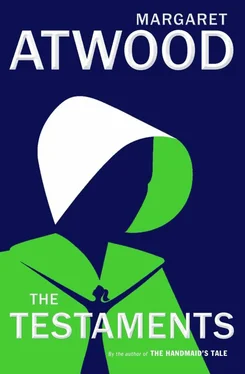

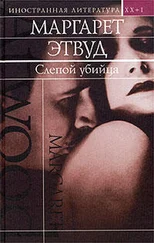

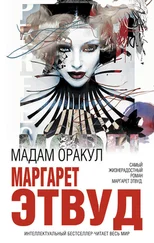
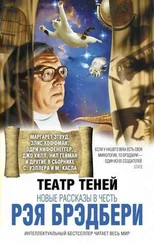
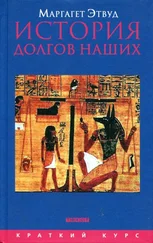
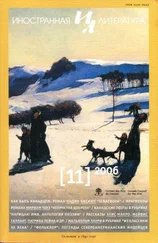
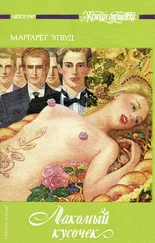
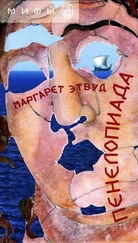
![Маргарет Этвуд - Лакомый кусочек [litres]](/books/384342/margaret-etvud-lakomyj-kusochek-litres-thumb.webp)
![Маргарет Этвуд - Избранные произведения в одном томе [Компиляция]](/books/389748/margaret-etvud-izbrannye-proizvedeniya-v-odnom-tome-thumb.webp)

